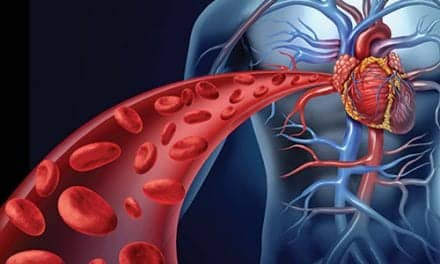Influenza vaccination reduces the risk of all-cause death, myocardial infarction, or stent thrombosis at 12 months in hospitalized patients with myocardial infarction or high-risk coronary disease, according to research presented at ESC Congress 2021.1
During influenza epidemics more people die from cardiovascular causes than during non-epidemic periods.2 Observational studies have suggested a protective effect from influenza vaccination on cardiovascular events, and single-centre randomised trials have supported these findings.3-5 Influenza vaccination is recommended for patients with heart disease6,7 but is not part of standard hospital care following an acute myocardial infarction.
The IAMI trial was the largest randomised trial to date to evaluate whether influenza vaccination improves outcomes following myocardial infarction or percutaneous coronary intervention in high-risk patients with coronary artery disease. The trial was conducted at 30 hospitals in eight countries (Sweden, Denmark, Norway, Latvia, the UK, Czech Republic, Bangladesh and Australia) over four influenza seasons spanning October 2016 through February 2020.
Participants were randomly assigned in a 1:1 ratio to receive either the influenza vaccine or placebo within 72 hours of an invasive coronary procedure or hospitalisation. The primary endpoint was a composite of all-cause death, myocardial infarction, or stent thrombosis at 12 months. A hierarchical testing strategy was used for the key secondary outcomes of all-cause death, cardiovascular death, myocardial infarction, and stent thrombosis.
The trial was halted prematurely on 7 April 2020 by the data safety and monitoring board due to the COVID-19 pandemic after the enrolment of 2,571 patients (58% of the target). The average age of participants was 60 years and 18% were women.
The primary composite endpoint occurred in 67 patients (5.3%) in the vaccine group and 91 (7.2%) in the placebo group (hazard ratio [HR] 0.72). Regarding secondary endpoints, death from any cause occurred in 37 patients (2.9%) in the vaccine group and 61 (4.9%) in the placebo group (HR 0.59). Rates of cardiovascular death were 2.7% and 4.5%, respectively (HR 0.59). There was no difference between groups in the rate of myocardial infarction, which occurred in 25 (2.0%) and 29 (2.4%) patients in the vaccine and placebo groups, respectively (HR 0.86).
Serious adverse events were rare and of similar type and incidence in both groups. injection site reactions like pain, redness, swelling, and hardening were reported significantly more often in patients assigned to influenza vaccine.
Principal investigator Professor Ole Fröbert of Örebro University, Sweden said: “The IAMI trial found that in patients with myocardial infarction or high-risk coronary disease, early influenza vaccination resulted in a lower risk of the composite of all-cause death, myocardial infarction or stent thrombosis at 12 months compared with placebo. Our findings suggest that influenza vaccination should be considered as part of in-hospital treatment after myocardial infarction.”
References
1IAMI: Influenza Vaccination after Myocardial Infarction randomised trial.
2Collins SD. Excess mortality from causes other than influenza and pneumonia during influenza epidemic. Public Health Rep. 1932;47:2159–2179.
3Gurfinkel EP, Leon de la Fuente R, Mendiz O, et al. Flu vaccination in acute coronary syndromes and planned percutaneous coronary interventions (FLUVACS) Study. Eur Heart J. 2004;25:25–31.
4Ciszewski A, Bilinska ZT, Brydak LB, et al. Influenza vaccination in secondary prevention from coronary ischaemic events in coronary artery disease: FLUCAD study. Eur Heart J. 2008;29:1350–1358.
5Phrommintikul A, Kuanprasert S, Wongcharoen W, et al. Influenza vaccination reduces cardiovascular events in patients with acute coronary syndrome. Eur Heart J. 2011;32:1730–1735.
6Knuuti J, Wijns W, Saraste A, et al. 2019 ESC Guidelines for the diagnosis and management of chronic coronary syndromes. Eur Heart J. 2020;41:407–477.
7Davis MM, Taubert K, Benin AL, et al. Influenza vaccination as secondary prevention for cardiovascular disease: a science advisory from the American Heart Association/American College of Cardiology. J Am Coll Cardiol. 2006;48:1498–1502.








